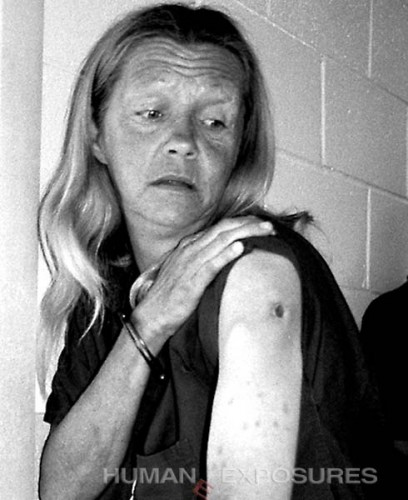In its recent report, The Mayor’s Commission o n the Status of Women calls upon the Tulsa community to support the efforts of local organizations that address issues surrounding female incarceration.
n the Status of Women calls upon the Tulsa community to support the efforts of local organizations that address issues surrounding female incarceration.
The Mayor’s Commission on the Status of Women is comprised of 15 Tulsa women who work and serve in various disciplines. The Commission has focused on female incarceration as its primary issue for the past two years.
Commission Chair Carmen Pettie said the statistics regarding female incarceration are staggering. Oklahoma currently incarcerates 127 women per 100,000 population, more than twice the national average of 63. Pettie noted that two thirds of women in prison are there for non-violent offenses, which are often substance-related. In 2013, 1,152 Oklahoma women were incarcerated, 18.4% of them in Tulsa County.
Sentencing laws do not differentiate between the amount of drug or between acts of possession and distribution, so women are often sentenced to lengthy prison terms for offenses that would bring little or no punishment in other states, the report said.
Pettie explained:
Oklahoma is a tough-on-crime state, and we will continue to focus on sentencing guidelines that do not distinguish between the severity of the crime.
As the Mayor’s Commission, we all believe we should continue to shine light on issues that impact women in Tulsa. There are several groups that are already working on female incarceration issues, helping women re-enter the mainstream and work environments, ensuring they continue to have relationships with their children when appropriate, and assisting with education and healthcare. We would like to generate more awareness around the issue, around the organizations and encourage Tulsans to support these efforts.
The Commission’s work was divided into five committees: health, education, communications, business and legislative. Each worked independently and together to conduct forums and discussions that led to a set of action steps for each area of emphasis.
In Oklahoma, which is the U.S. leader in methamphedarine crime, risk factors for women include: poverty, histories of family dysfunction, domestic violence and relationships with men who engage in criminal behavior.
Also in Oklahoma, as in many other states, there is a direct correlation between the growing number of private prisons and number of women incarcerated. Fees paid to private prison corporations are directly tied to number of incarcerations, and
private prison corporations often make campaign donations to political candidates and lobby legislative leaders to continue the state’s tough sentencing guidelines.
Today, there is some current positive legislative news. Senate Bill 1278 will create a “Pay-for-Success” pilot program, and other legislators are also working on this issue.
The report examines the impact incarceration of a mother has on children. Children are traumatized and feel sense of abandonment, and these children are more likely than the average child to end up in prison.
Each year, 8,000 ex-offenders are released from Oklahoma prisons. The obstacles facing women upon release include
reunion with children, re-entry into labor marketing, safe
and affordable housing, access to education and access to healthcare.
The Women in Recovery program costs $14,500 for three years, versus $40,000 for three years’ incarceration.
Here is what committees of the Mayor’s Commission on the Status of Women are working on this year.
The Health Committee: Enhances and improve awareness and utilization of health resources, develops information graphics and
researches health resources in other states.
The Education Committee focuses on education for all Oklahoma women and seeks to enhance educational opportunities of formerly incarcerated women upon re-entry.
The Communications Committee: uses all forms of media to communicate the efforts of the groups working to solve the issue.
It is planning a 2015 follow-up Town Hall event continuing the group’s focus on incarcerated women. It aims to broaden
outreach and increase attendance at the event by again using all media, with emphasis on Social Media.
The Women in Business Committee endeavors to follow up roundtable discussions with additional businesses, distribute its “Uncheck the Box” DVD to human resource departments and
establish a central resource listing.
Finally, the Legislative Committee will contact state legislators to explore how to best address the impact of sentencing laws and
develop a flowchart to follow the paths of women incarcerated for non-violent crimes.
The report’s concluding challenge: Let’s break the cycle and invest in resources to ensure success.









